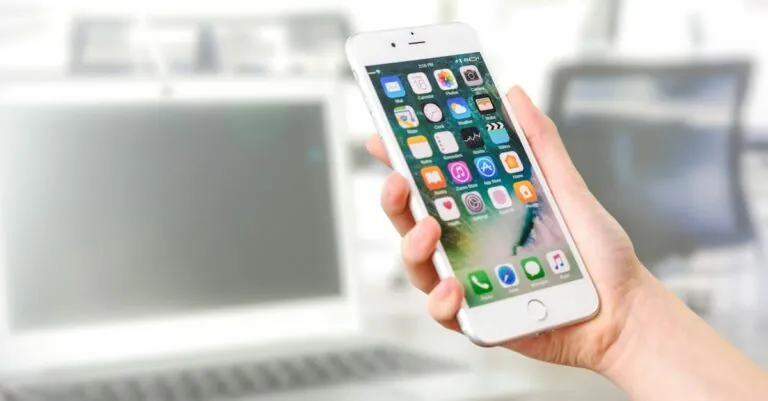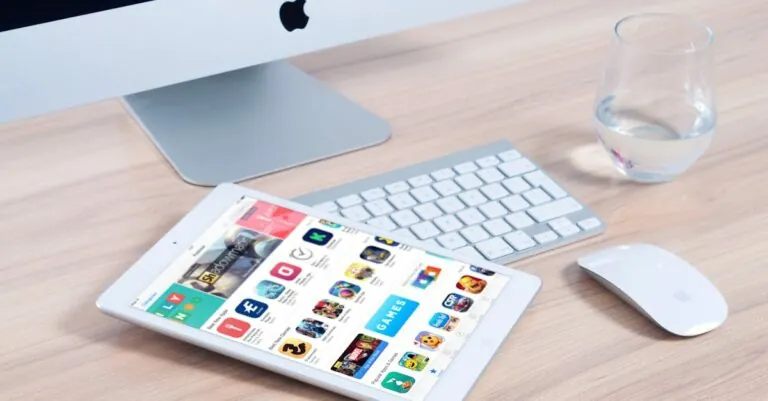In today’s fast-paced digital world, smartphones have become an extension of ourselves. They hold our schedules, connect us with friends, and even help us navigate the grocery store. But have you ever found yourself staring at a screen full of open apps and wondering if they’re secretly plotting against you? It’s like a chaotic party in your pocket where every app is vying for your attention!
Table of Contents
ToggleOverview of Open Apps
Open apps play a significant role in enhancing user experience on smartphones. In many cases, these applications allow quick access to various services and functions. Users often find themselves multitasking with multiple apps running simultaneously, such as messaging, navigation, and social media.
Smartphones typically feature a task manager that displays currently open apps. This visibility helps users monitor what they’re working on. Switching between these apps saves time, allowing for efficient multitasking.
For example, a user might keep a messaging app open while browsing the internet. Effective organization of open apps can lead to smoother transitions and improved productivity.
Notifications from these applications also contribute to the user’s engagement. Each alert can prompt immediate responses, making it easy to stay connected.
To maximize device performance, consider managing open apps regularly. Some applications consume significant battery power and memory. Closing unused apps can enhance device speed and conserve resources.
Statistics reveal that over 70% of smartphone users have multiple apps open at any given time. This trend highlights the importance of app management for optimizing performance.
Ultimately, understanding the implications of open apps affects overall smartphone usability. The more informed users are about their open applications, the better their smartphone experience.
Popular Apps to Open on My Phone
Smartphones provide quick access to a range of applications that enhance daily life. Popular categories include social media, productivity, and entertainment apps.
Social Media Apps
Social media apps dominate usage patterns among smartphone users. Facebook, Instagram, and Twitter enable easy connections with friends and the broader community. These platforms facilitate real-time communication and content sharing across various formats such as images, videos, and live streams. Engagement often leads to time spent scrolling through feeds, as notifications encourage frequent check-ins. Over 74% of people actively use at least one social media app, demonstrating their influence on connectivity and information sharing.
Productivity Apps
Productivity apps significantly boost efficiency for users. Applications like Trello, Evernote, and Google Drive streamline task management, note-taking, and collaborative work. Task organizers help individuals prioritize responsibilities and meet deadlines effectively. Using these apps, over 60% of users report increased productivity since they simplify tracking and organizing tasks. Calendar apps also help manage schedules, reminding users about important events and deadlines to ensure optimal planning.
Entertainment Apps
Entertainment apps offer a wide variety of options for leisure activities. Streaming platforms such as Netflix, Hulu, and Spotify provide endless content from movies to music for users to enjoy anytime. Users can easily switch between listening, watching, or reading, making these apps essential for relaxation. Data shows that nearly 65% of smartphone users engage with some form of entertainment app daily. Instant access to favorite shows and playlists enhances the overall experience, keeping users engaged and entertained on-the-go.
How to Manage Open Apps
Managing open apps enhances smartphone performance and user experience. Users can optimize efficiency and enjoy smoother multitasking by keeping apps organized.
Closing Unused Apps
Closing unused apps conserves battery and memory. Regularly shutting down apps no longer in use can improve device speed. Smartphone users should consider pausing apps that haven’t been engaged for a while. For instance, double-tapping the home button or swiping up can reveal all active apps. From there, users swipe away apps they no longer need. Research shows that 70% of users leave multiple apps open simultaneously, so closing them can significantly enhance performance.
Using App Switching Features
Utilizing app switching features makes navigation efficient. In many smartphones, a simple swipe allows users to switch between recently used apps. Users can often access this feature by swiping up or tapping the app icon. This enables quick transitions and reduces time spent searching for apps. Studies indicate that effective app management enhances overall productivity, with over 60% of users benefiting from quicker task handling. Adopting these features simplifies multitasking while keeping the device running smoothly.
Benefits of Organizing Open Apps
Organizing open apps enhances device performance significantly. By closing unnecessary applications, users can stretch battery life and boost speed. Improved memory management leads to smoother operation. Benefits include reduced lag and quicker response times.
Prioritizing frequently used apps simplifies navigation. Quick access fosters better multitasking, enabling users to manage tasks more efficiently. It becomes easier to find relevant apps and services, increasing overall productivity. Research shows that over 60% of users report enhanced task handling through structured app organization.
Maintaining a tidy app environment contributes to a less chaotic user experience. A streamlined approach prevents overwhelming users, similarly to clearing clutter in a workspace. Notifications from relevant apps remain prioritized, ensuring no important messages get overlooked. Prioritized alerts enhance connectivity, catering to real-time communication needs.
Regularly reviewing open apps offers additional organizational benefits. Users can identify which applications drain resources. This awareness aids in conserving both battery and memory. Over 70% of smartphone users keep multiple apps active, underscoring the essential nature of effective app management.
Engaging with only vital apps can lead to more focused smartphone interaction. Reducing distractions improves concentration, benefiting productivity across various tasks. Simplifying app access encourages users to engage with their most important tools, shaping a more effective digital experience.
Managing open apps is crucial for a seamless smartphone experience. By keeping only essential applications active users can enhance performance and extend battery life. This not only reduces distractions but also allows for smoother multitasking.
Regularly reviewing open apps helps identify those that may be draining resources. With simple techniques for app management users can foster a more organized digital environment. This ultimately leads to improved productivity and a more enjoyable interaction with their devices. Embracing effective app management strategies ensures that smartphones remain valuable tools in daily life.


